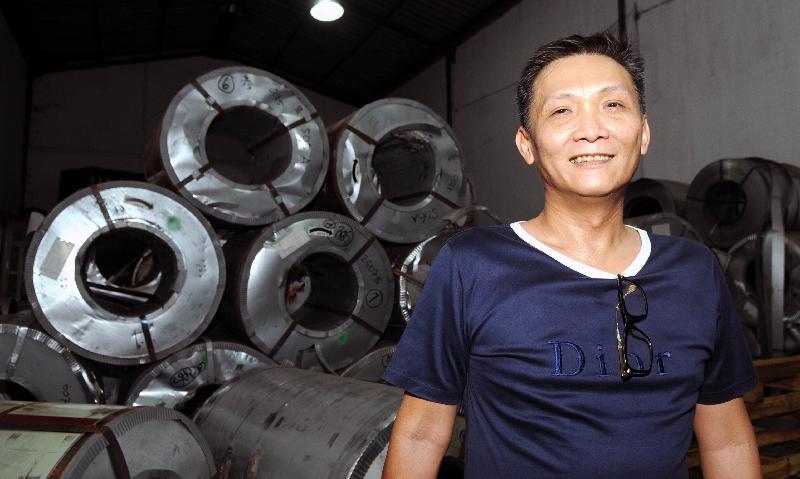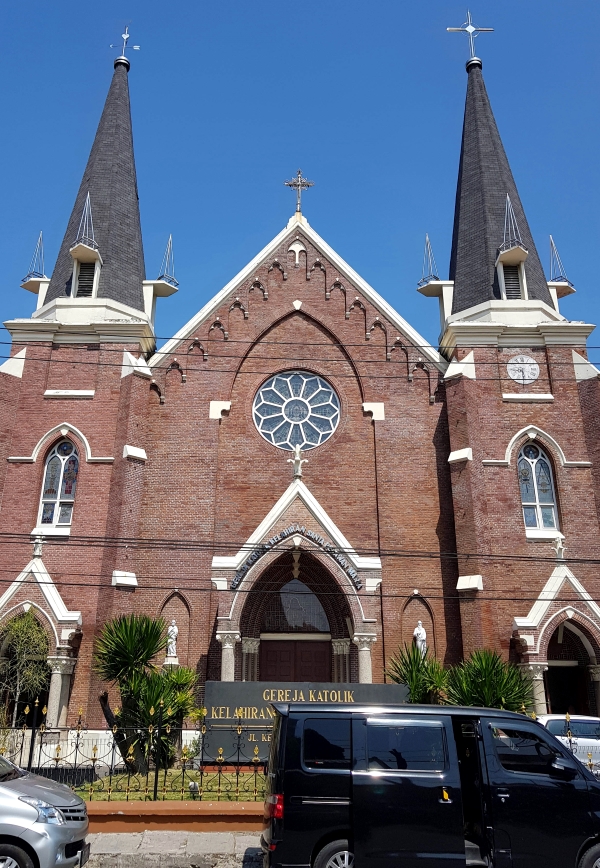
Ong Su Chien @ Adam Muis, Plaster Block Division Head of Blue Stell Industries)
Ong Su Chien's company sent him to Jakarta in 1994, not long after his graduation, to expand the company's market and business in Indonesia.
Originally Ong was to help his company's business in Bangkok and Ho Chi Minh City but was later persuaded to come to Jakarta.
"I was still single at that time and I gave myself the opportunity to explore. Unfortunately Indonesia suffered from the regional crisis two or three years later, with the rupiah exchange rate dipped below the 10,000-mark to the greenback, forcing the company to end its business in Indonesia because of the unfavorable exchange rate."
When Ong first arrived in Jakarta, the rupiah was traded at 1,700 to the dollar, but later slipped to 2,300.
Although he was forced to leave the company, Ong could not return to Malaysia immediately because he had just married an Indonesian woman. So he decided to give it a try by setting up a new company under his wife's name, and continued to source from his ex-company's suppliers in order to supply to the ex-company's clients.
"What happened later concluded that my previous company's decision to wind up its business in Indonesia was a wrong one. My medicinal raw materials still had a market in the country and my ex-colleagues from Malaysia also did the same as me to explore different markets here.
"The first two years were tough, but when the Indonesian economy began to pick up again, my business was back on the track of growth."
However, due to problem in his marriage some three and a half years ago, Ong was no longer able to continue operating his business registered under his wife's name.
With the support of a local Indonesian company, Ong switched to the business of zinc-plated panel imports. Later with a Chinese company joining in, they planned to set up own factory in Surabaya over the next one and a half years.
The anti-dumping taxes imposed on imported steel products from China and six other countries by the Indonesian authorities last year offered a unique opportunity for local manufacturers. Ong hopes the factory will begin production later this year.
No time to go back

To concentrate on his Indonesian business, Ong has not gone back to his hometown in Bukit Mertajam, Penang for three years.
"To be honest, I miss my hometown and the food there. I also miss my parents but I need to be more focused in a new venture, not to mention regular travels between Jakarta and Surabaya.
"I was later given the mission to prepare for the commissioning of the new factory. My schedule for the next one a half years is full. It's impossible for me to go back to Malaysia in the near future."
However, his daughter would go back to Bukit Mertajam occasionally in order to meet his parents "on his behalf".
"My daughter has been an Indonesian since she was born. She later attended a local school although I would teach her some Chinese at home.
"She was the only one in her school to learn Chinese and there were only two of us that spoke the language at home. After some time, she began to lose her interest in learning Chinese."
In 1998, the Malaysian embassy in Jakarta set up an association for Malaysians with a membership of around 300. Initially Ong frequented the association in order to meet up with fellow Malaysians but had to stop doing so after some time due to their busy schedules.
Ong admitted that he had adapted very well into the local Indonesian society. To him, having been living in Indonesia alone for three years, it wouldn't be problem for him to continue living there.
"Barring any untoward incident, Indonesia will be commanding very powerful position in the whole of Asean. Although the country is facing some internal issues, mainly in its population, the government has been able to control the situation quite well. The country's power must never be underestimated."
To him the biggest difference between Malaysia and Indonesia is that Malaysia still retains its cultural diversity whereas Indonesia is more unitary.
"The government has begun to relax many policies, making it much easier for foreign investors to start a business here, especially after Jokowi's re-election.
"This shows that Indonesians are becoming more open-minded and are increasingly embracing modernization."
Riots
Ong himself experienced the anti-Chinese riots of 1998. Actually he had anticipated some form of turmoil three days before the actual outbreak of violence, but never thought it would get this bad.
"I stocked up sufficient food before the violence broke out. When it started, my ex-wife and I hid inside our house and never stepped out of it. Fortunately the unrest came to a close in just two days' time thanks to the effective enforcement by the police and military."
The main causes of the riots were the regional financial crisis of 1997, widespread frustration towards government policies and widening wealth gap.
For three to four years after the riots, the Indonesian economy was in a state of stagnancy. Life was very tough for Ong, as he had just started his own company supplying medicinal raw materials.
ADVERTISEMENT
ADVERTISEMENT


































